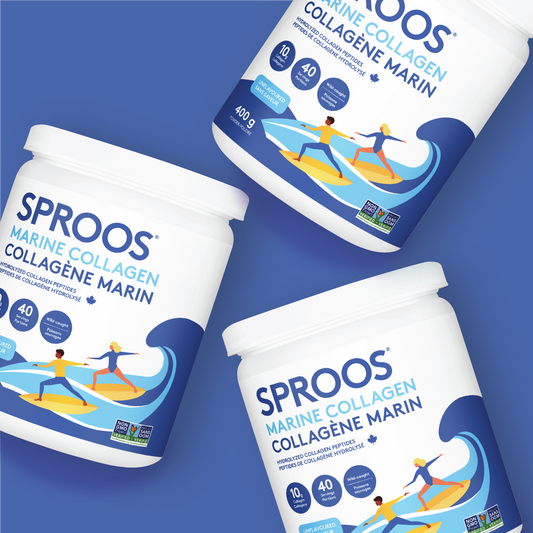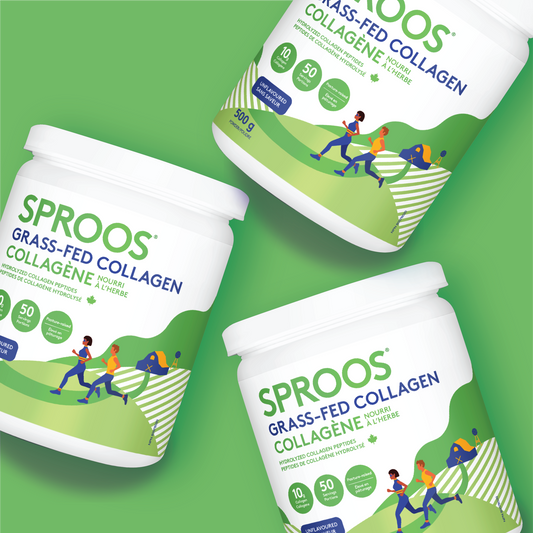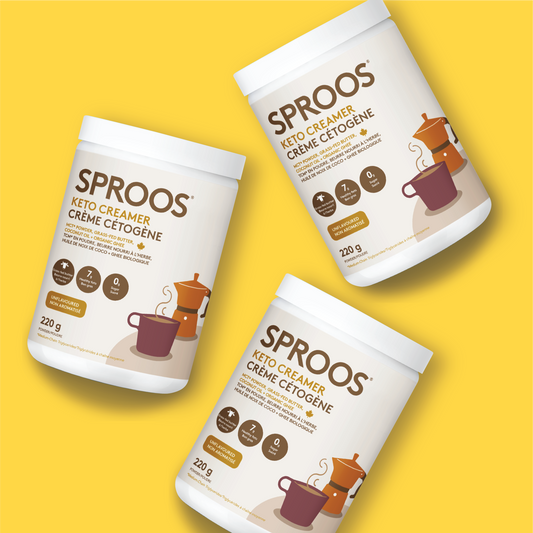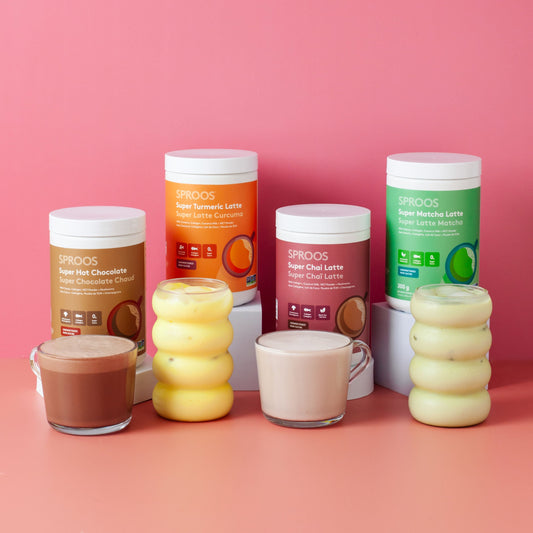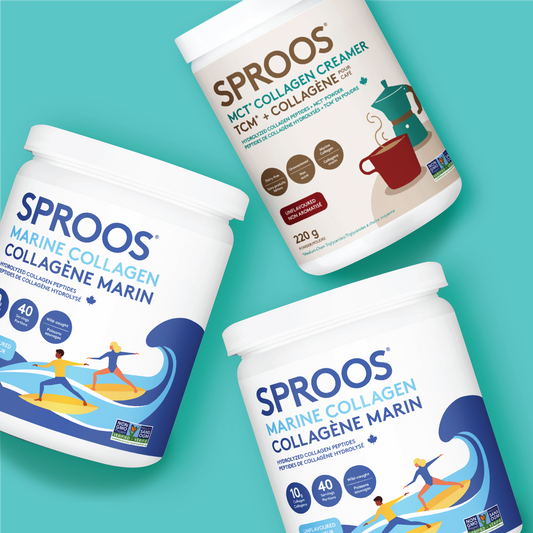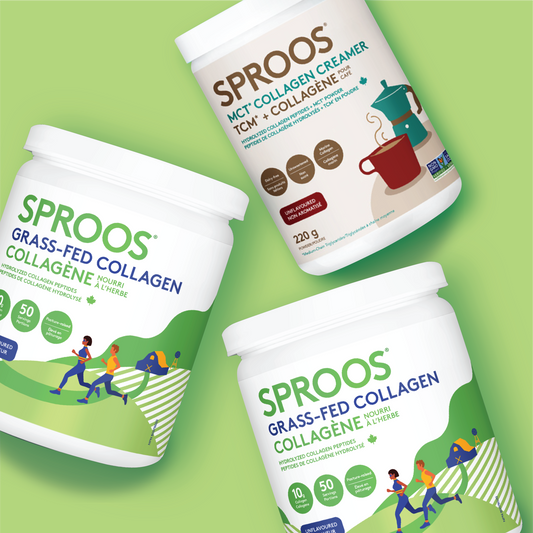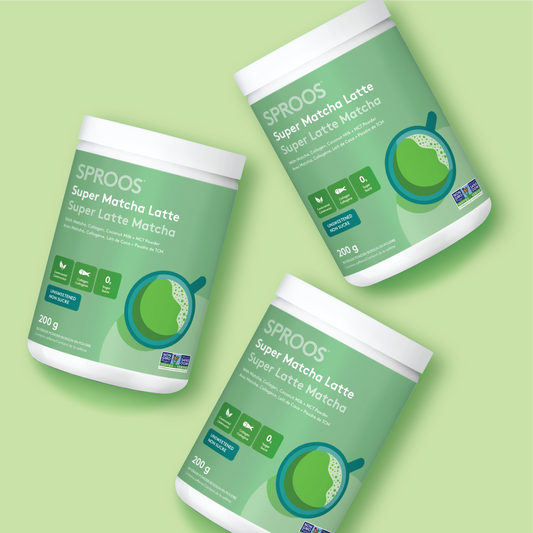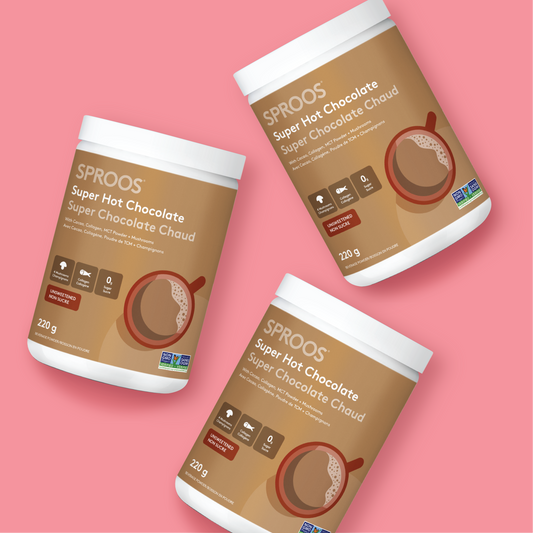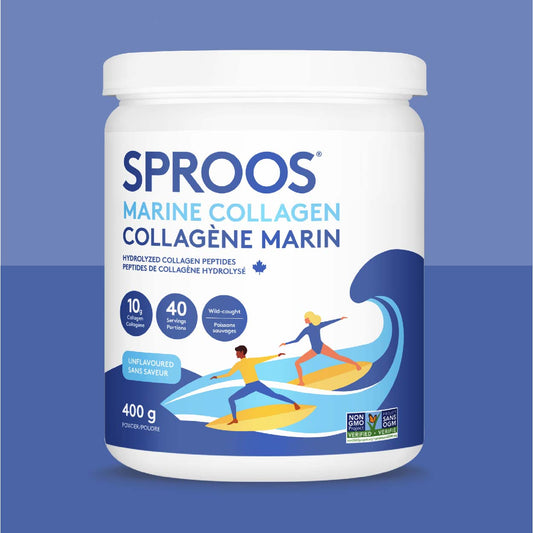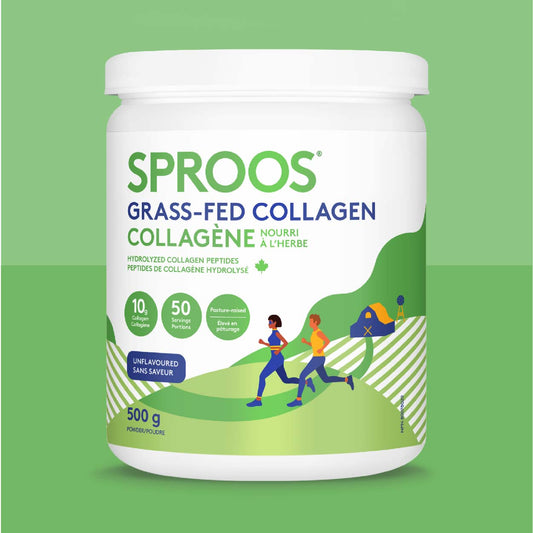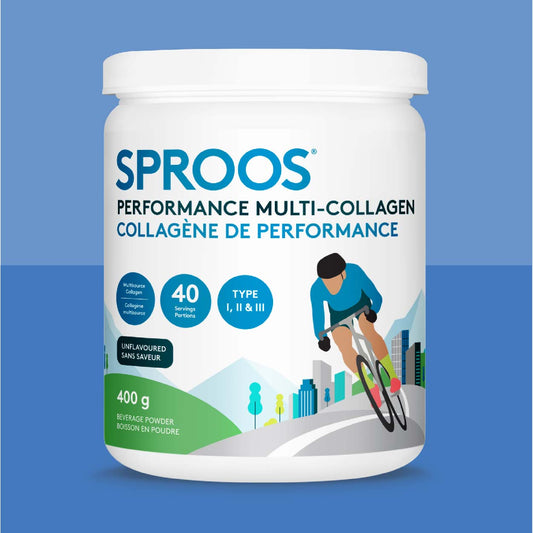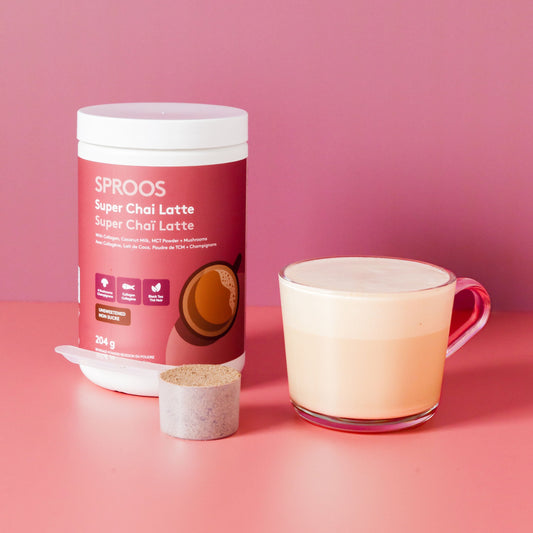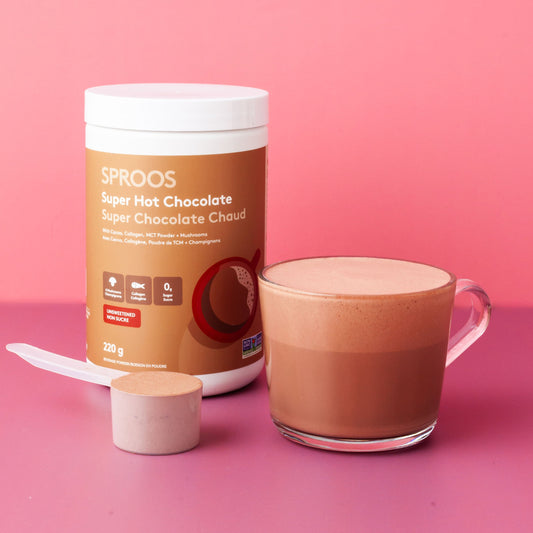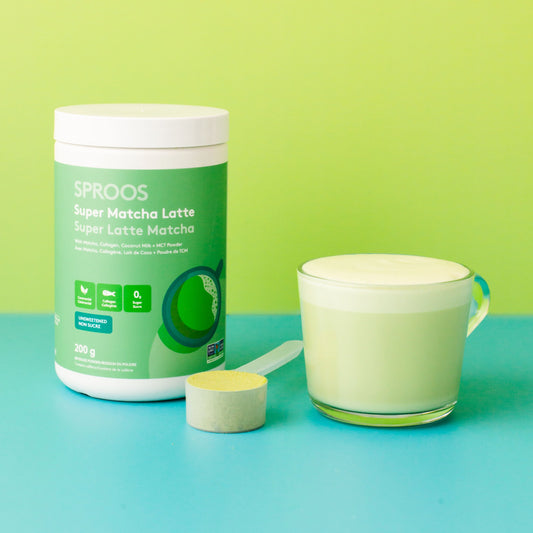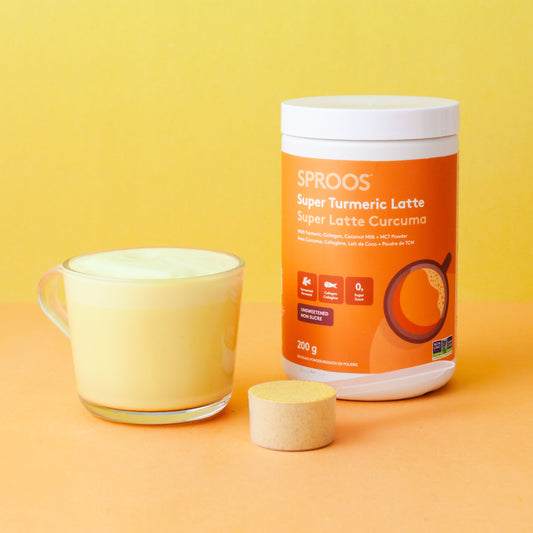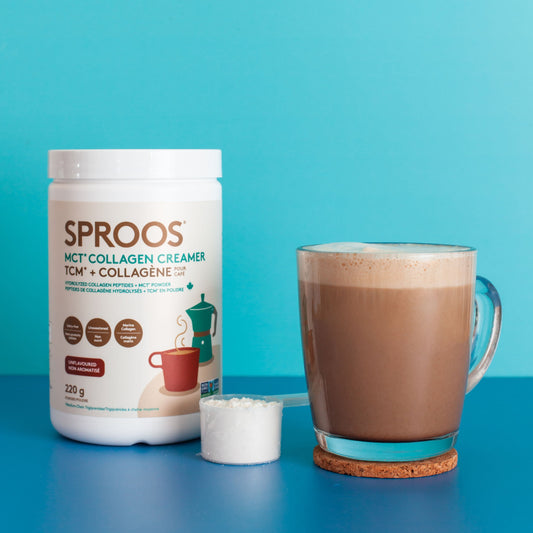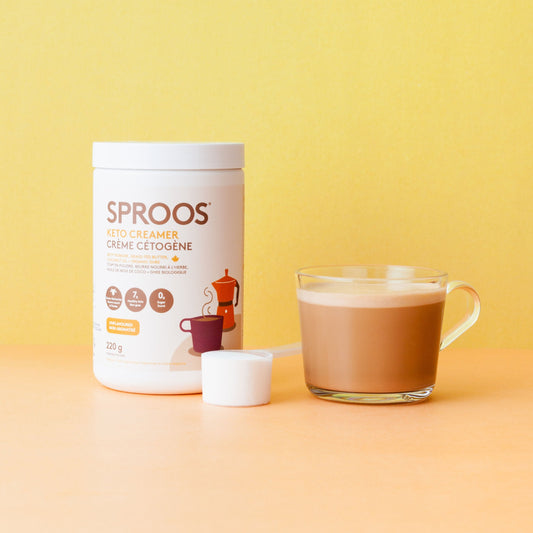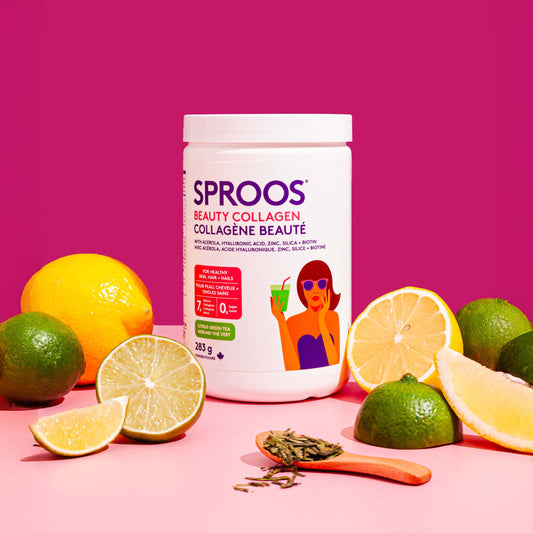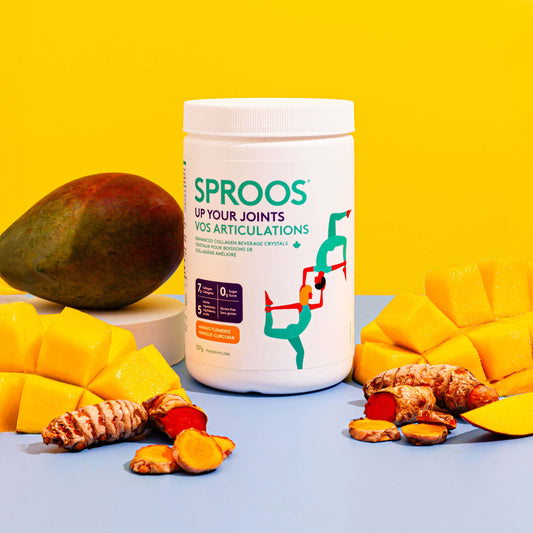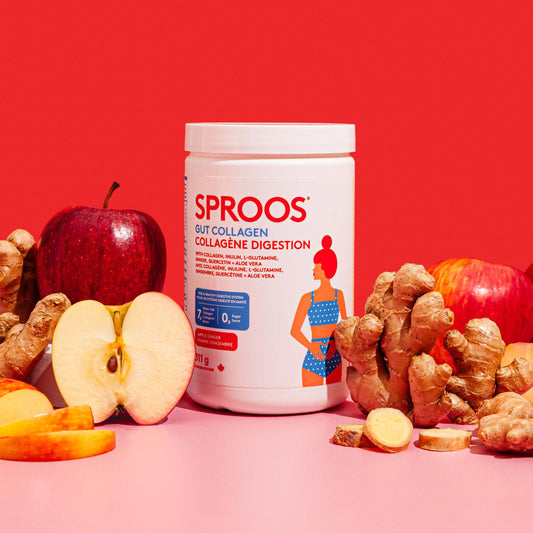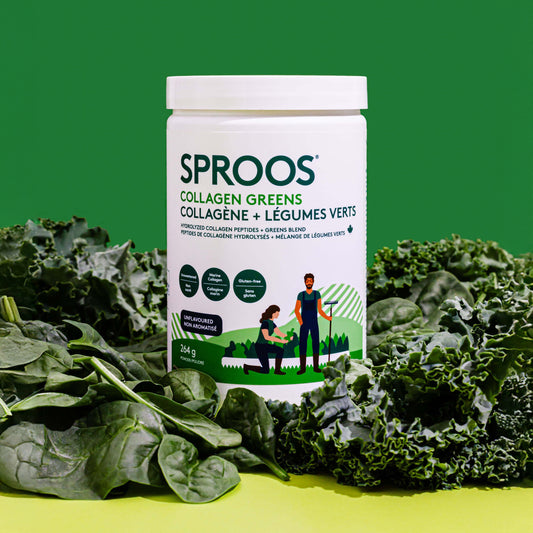We are going to be honest here, there are no vegan or plant-based sources of collagen.
We said it! Collagen can only be sourced from animals. There are 16 different types of collagen, but collagen types I, II and III make up 80-90% of collagen in the body. Marine collagen is a source of type I collagen and bovine collagen is a source of I and III.
Why only animal sources? Collagen is a protein that's sourced from parts of the animal we don't eat in our modern diets - like cartilage, bones and skin. Our bodies produce collagen naturally. It's found in our connective tissues, joints, gut and skin.
As we age, our bodies natural production declines. Starting in our early twenties, we are producing around 1.5% less each year. By the time we hit 40 years old, we are producing about 25% less collagen than we used to. There are also environmental and health factors that can contribute to the loss of collagen production too.
It's a confusing subject and something we get asked about often. There are many supplements on the market claiming to be a source of vegan or plant-based collagen. That is where the confusion lies. These supplements aren't providing a source of collagen. Instead, they are providing nutrients that support your body's natural collagen production. They are a collagen-production booster, rather than a collagen supplement.
A collagen supplement provides your body with a bioavailable (easily absorbed) source of nutrients. There is evidence of many skin, hair, joint and gut benefits to taking collagen supplements. But fear not! If you're vegan or mostly plant-based there are still ways for you to boost your collagen production.
Be Proactive About Prevention
Prevention is key to maintaining your natural collagen production. A healthy lifestyle goes a long way. Overexposure to the sun negatively impacts the collagen in your skin. Gone are the days of spending the day tanning (or burning) with baby oil. Sunscreen is an effective and convenient way to protect your skin. So don't forget to slap on some SPFs before heading out for the day.
Smoking is another no-no when it comes to collagen. You might notice that smokers tend to age faster than others. That's because smoking has been found to decrease collagen production in skin. So if you're looking for some ways to naturally boost and support your collagen production, taking a look at your lifestyle is a great place to start.
Variety Is The Spice of Life
Collagen supplements are the easiest and most effective way to get your collagen in. However, a diet rich in healthy plant foods gives your body the nutrients it needs to thrive. Eating a diet rich in plant-based variety helps defend your body against environmental and health factors that can ultimately affect your collagen production. Some collagen-boosting foods include dark green veggies, peppers, tomatoes, carrots and berries.
The saying "eat the rainbow" really reigns true. These foods are all full of micronutrients that help your body thrive. Dark green veggies like spinach, kale and collard greens are rich in vitamin C. Red veggies like peppers, tomatoes and beets are high in lycopene. Orange veggies like carrots, bell peppers and sweet potatoes are a good source of vitamin A. Getting a variety of plants in your diet is key for a healthy body and therefore for your collagen production too.
Supplement Your Diet
A perfect diet rich in a variety of plant-based foods is great, but life gets busy. Enter supplements. There are supplements that have been shown to help boost your body's natural collagen production. These supplements include vitamin C, proline and copper.
Vitamin C is vital for skin health. It's found in both the inner and outer layers of the skin. The outer layer, or epidermis, acts as a barrier for the skin. The inner layer, or dermis, ensures strength and elasticity of the skin. As we age, vitamin C content in the skin declines. There is a reason many anti-aging creams tout the benefits of vitamin C. It assists antioxidants in protecting against sun damage, stimulates collagen synthesis and supports skin function.
Proline is one of the key amino acids, or building blocks, in collagen synthesis. It has been proven to restore collagen synthesis in sun-damaged skin. If you're not a fan of taking supplements, it can be naturally found in cabbage, asparagus, bamboo shoots, and mushrooms (among others).
Copper has been used as a skin-boosting supplement dating back to the Ancient Egyptians. According to this study, copper "upregulates collagen and elastin fiber components" in the skin. It binds with collagen building peptides and conveys them to the skin where they can be put to work improving elasticity and diminishing fine lines and wrinkles. Cleopatra was on to something!
Fish Friendly
If your plant-based diet is flexible, marine collagen could be a fit for you. Sproos marine collagen is sourced from wild-caught fish in the North Atlantic, so it’s pescetarian-friendly. After learning about the health benefits of collagen, many plant-based people are willing to give it a try. Our marine collagen is unflavoured and doesn't have a "fishy" taste. It dissolves easily into both hot and cold, so it's easy to incorporate into your daily diet. From a sustainability standpoint, our marine collagen is sourced from the parts of fish that are typically discarded (like skin and scales) making it a sustainable source of this powerful food.Takeaway
While there is no vegan source of collagen, there are a few ways to support your body's natural collagen production. First of all, prevention is key. Limiting exposures including sun, smoking and alcohol are a good place to start. Whether you are vegan or not, eating a diet full of plant-based variety is important. Supplements have been shown to boost your body's natural collagen production.
Carly Chagas
Sproos Brand Manager
With a passion for food and wellness, Carly has worked in the natural food industry over the last few years specializing in marketing. She holds a Master of Science (MSc) degree in Human Health and Nutritional Sciences and continues to work to combine her passion and education at Sproos. Carly lives in Toronto and when she's not working, she can be found out and about the city with her dog, Lilly, or hitting up a yoga class.



